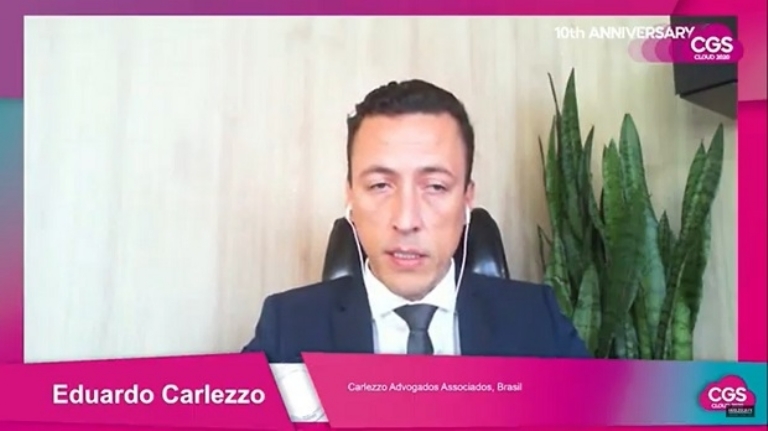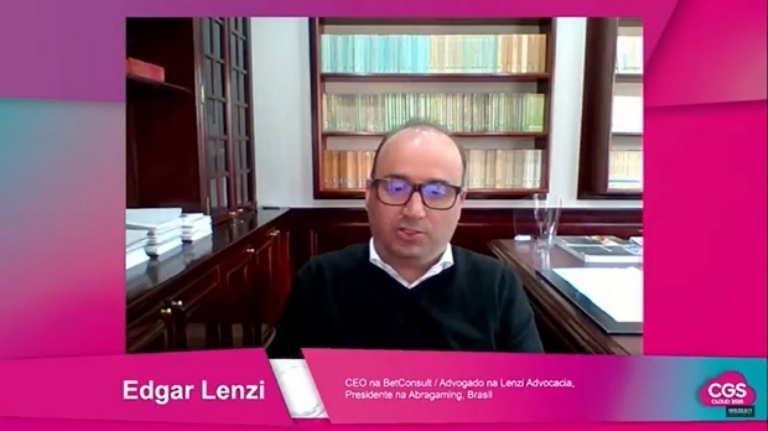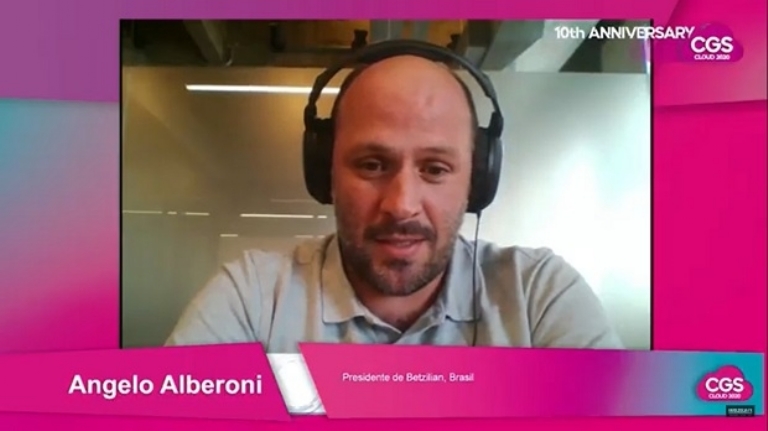

Mediated by Magnho José, from the Brazilian Legal Gaming Institute, the panel “Gaming in Brasil 2020-2023”, was attended by Edgar Lenzi, CEO at BetConsult and president of Abragaming; Angelo Alberoni, Betmotion's country manager Brazil; and Eduardo Carlezzo, from the law firm Carlezzo Advogados.
At the opening, Magnho recalled that Brazil has more than 200 million inhabitants and that the population is still not formally served by the gaming sector. "It is in the focus of operators from all over the world, but unfortunately we are world champions in illegal gambling, moving around US$ 6 billion a year, with no counterpart to the government in the form of taxes," commented before giving the floor to Carlezzo.

He recalled that three public consultations had already been held to hear from society about the gaming activity and that in the case of sports betting, much was said about regulation in a period shorter than the two years initially provided for when the law was passed. “But that did not happen and the government ordered the BNDES to do the most appropriate modeling for the vertical. The BNDES 'role is important, but what concerns me is that the bank has numerous grandiose projects to deal with and sports betting will not have the priority that the industry expects. As a result, everyone loses, as we neither collect nor generate jobs in Brazil.”
Edgar Lenzi stated that Brazil is seen as a great opportunity for operators from all over the world, but the delay in defining rules compromises the country's credibility. “We approved the sports betting law, which was very important for Brazil and created a worldwide expectation, but at the same time a very big disappointment for the delay in completing the process. We have time to do something good for Brazil, but we need to do it well,” he said.

Magnho asked Angelo Alberoni about the possibility of following examples from abroad, reminding Portugal, which also took time to approve sports betting. Alberoni said that the Portuguese example cannot be followed because “the tax issue is very different in the two countries. In addition, both have completely different dimensions and different expectations. What is important for Brazil is the fact that today there is more and more talk about sports betting and some of the main world brands are already in the country,” stated Betmotion´s country manager in Brazil.

Carlezzo stated that “we will never have the best law. We have to pass legislation and adapt it to the development of the activity, as it will be a learning process for everyone involved.”
Regarding the time it will take Brazil to have sports betting regulated, all panelists are of the opinion that it will come at least at the end of next year. Lawyer Eduardo Carlezzo went even further: “I am a pessimist. It involves controversy and many parliamentarians, so I think that only in the first half of 2022,” he said.
Alberoni and Lenzi share the opinion that Brazil should approve a regulatory framework for gambling that allows the implementation of all verticals of activity in the country, unlike Carlezzo, who thinks it is more appropriate the development of casinos in integrated resorts. In defending his position, he said that a large resort integrated with casino could attract tourists to less central regions. Lenzi, on the other hand, stated that "my concept is to approve a broad legalization of the gaming sector, in all its verticals, without the concentration of casinos in the hands of large American corporations," he said.
For him, when it comes to integrated resorts, it can generate concentration of investment and business. “Competition between operators would be more beneficial to society. There will be few casinos in integrated resorts that will be a strong tourist attraction. In Brazil, several options for casinos for 4 or 5 stars hotels, with machine rooms, as well as the return of bingos and the approval of other modalities would be much more interesting,” he said.
At the end of the panel, the three speakers agreed that Brazil has to move forward and take the gaming sector off the ground and bring it to reality. "The industry wants this, and expects only the definition of criteria for investing in Brazil and guaranteeing real benefits for society, whether in the form of taxes or job creation," they agreed.
Source: GMB